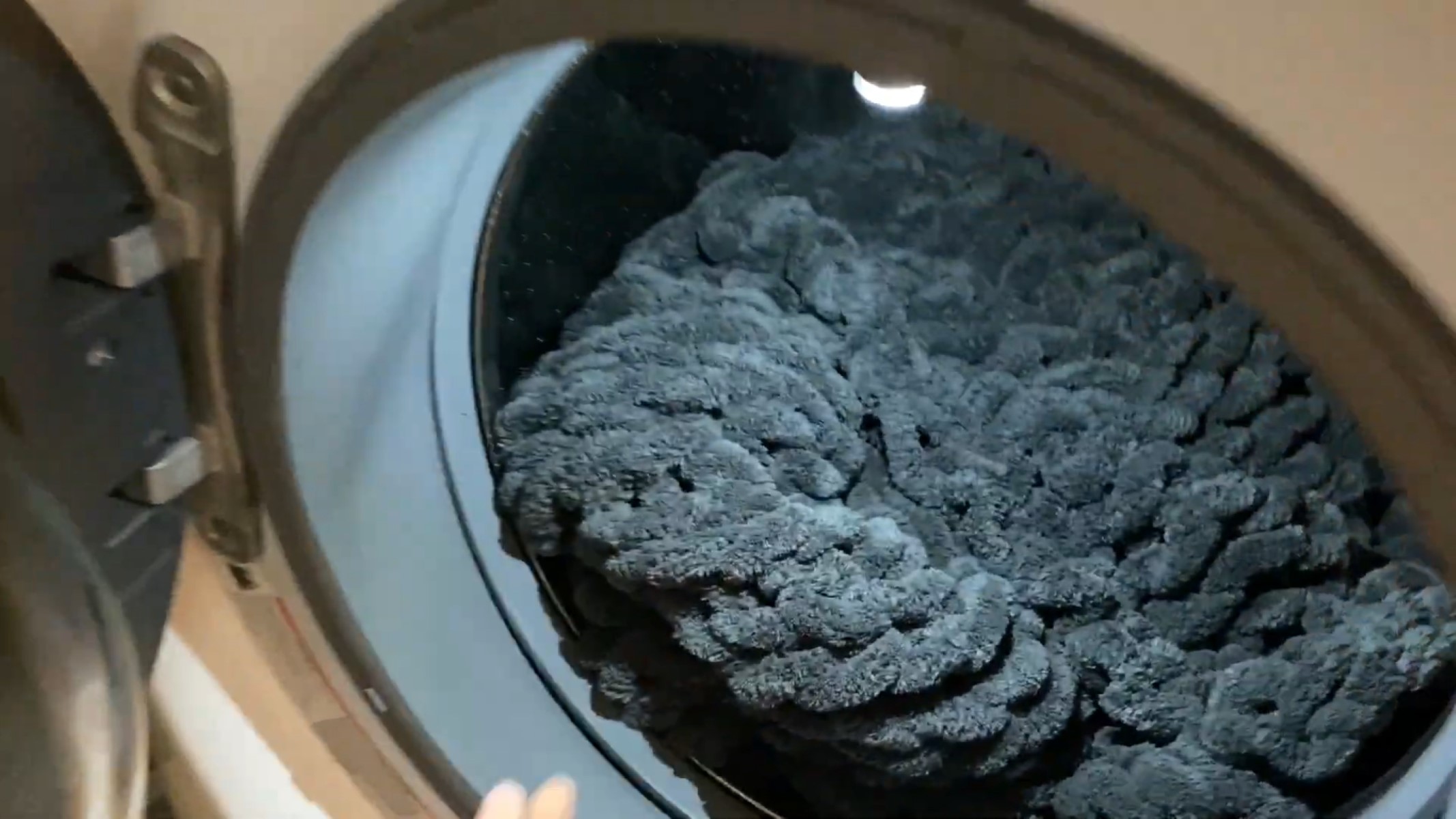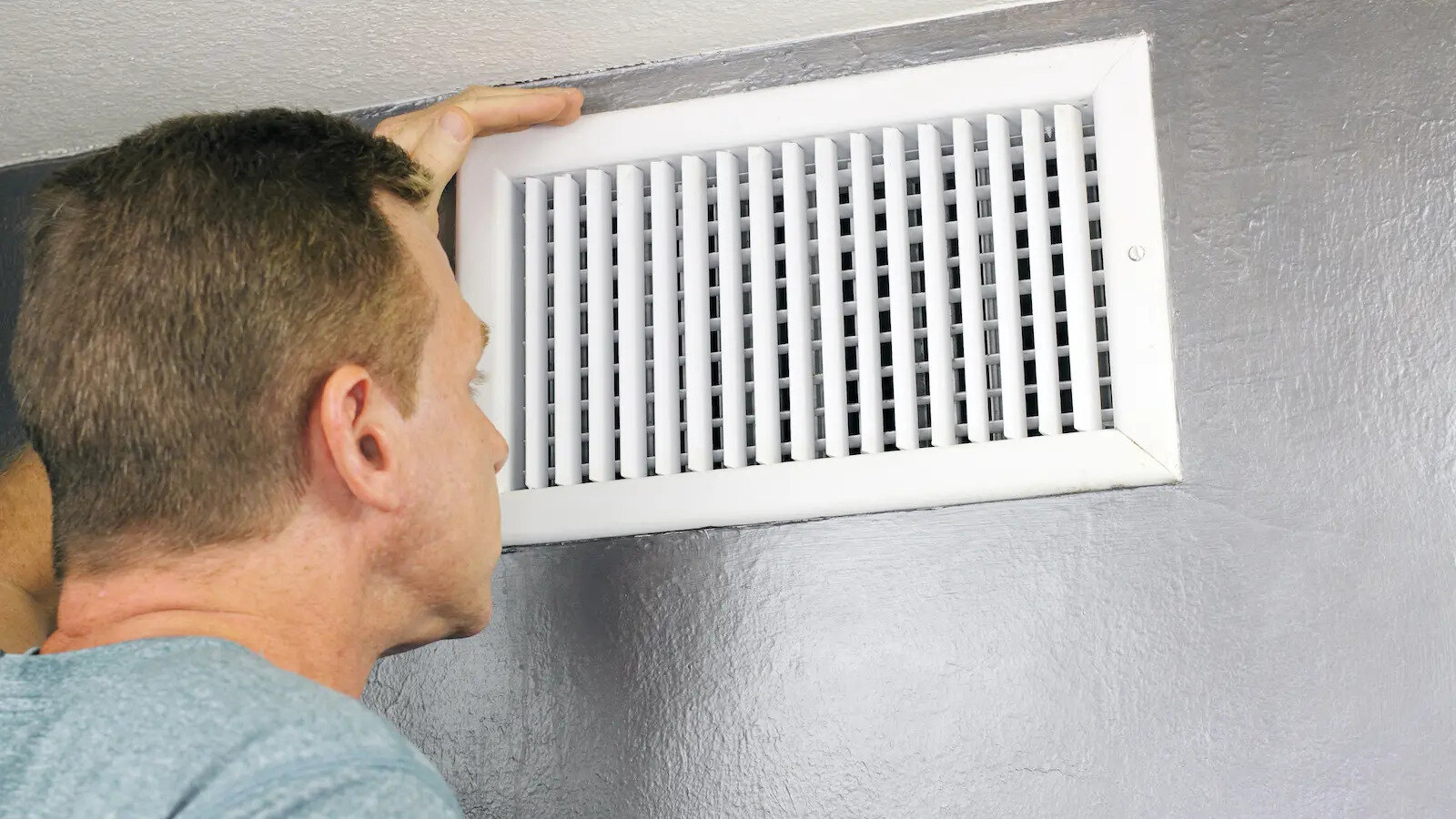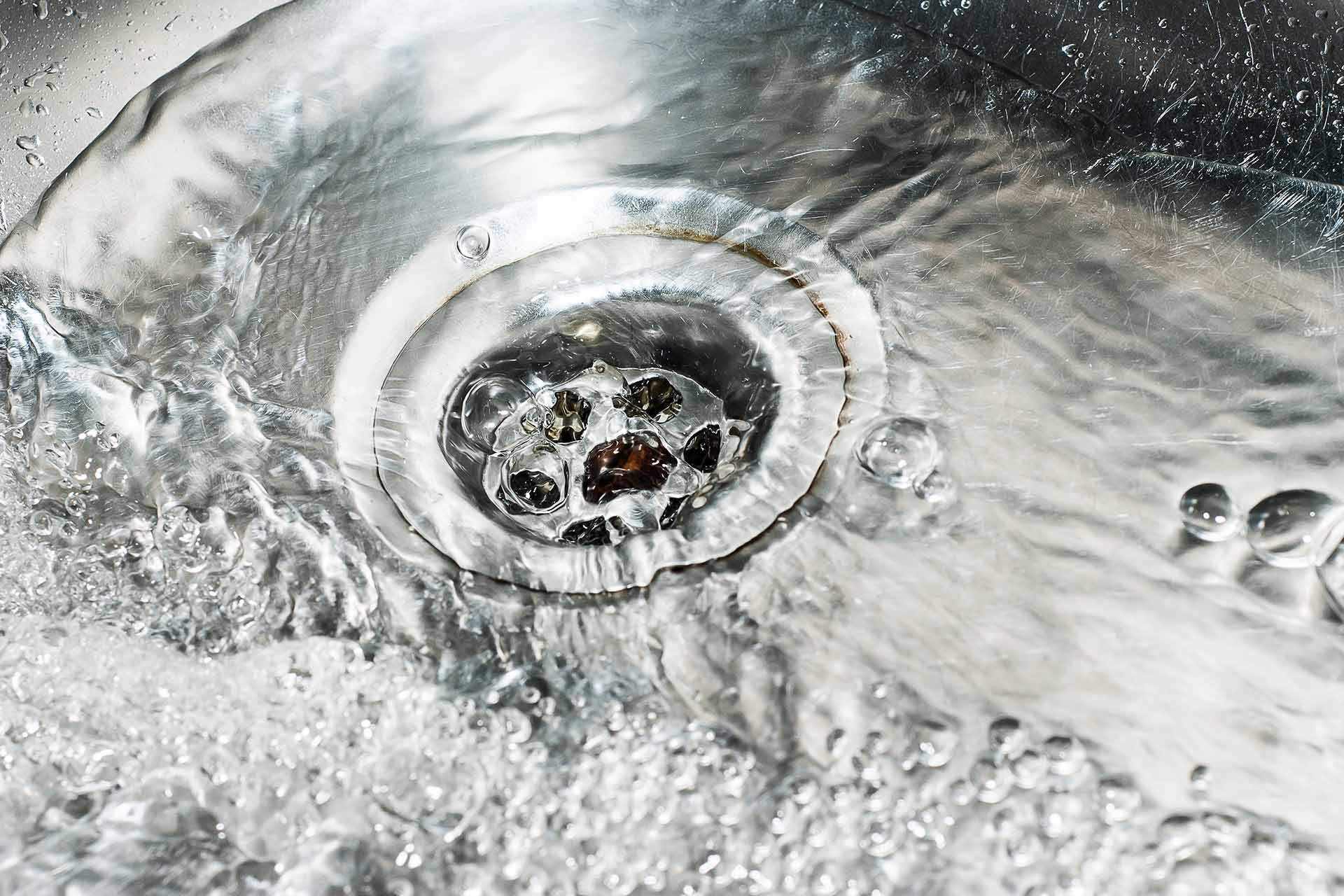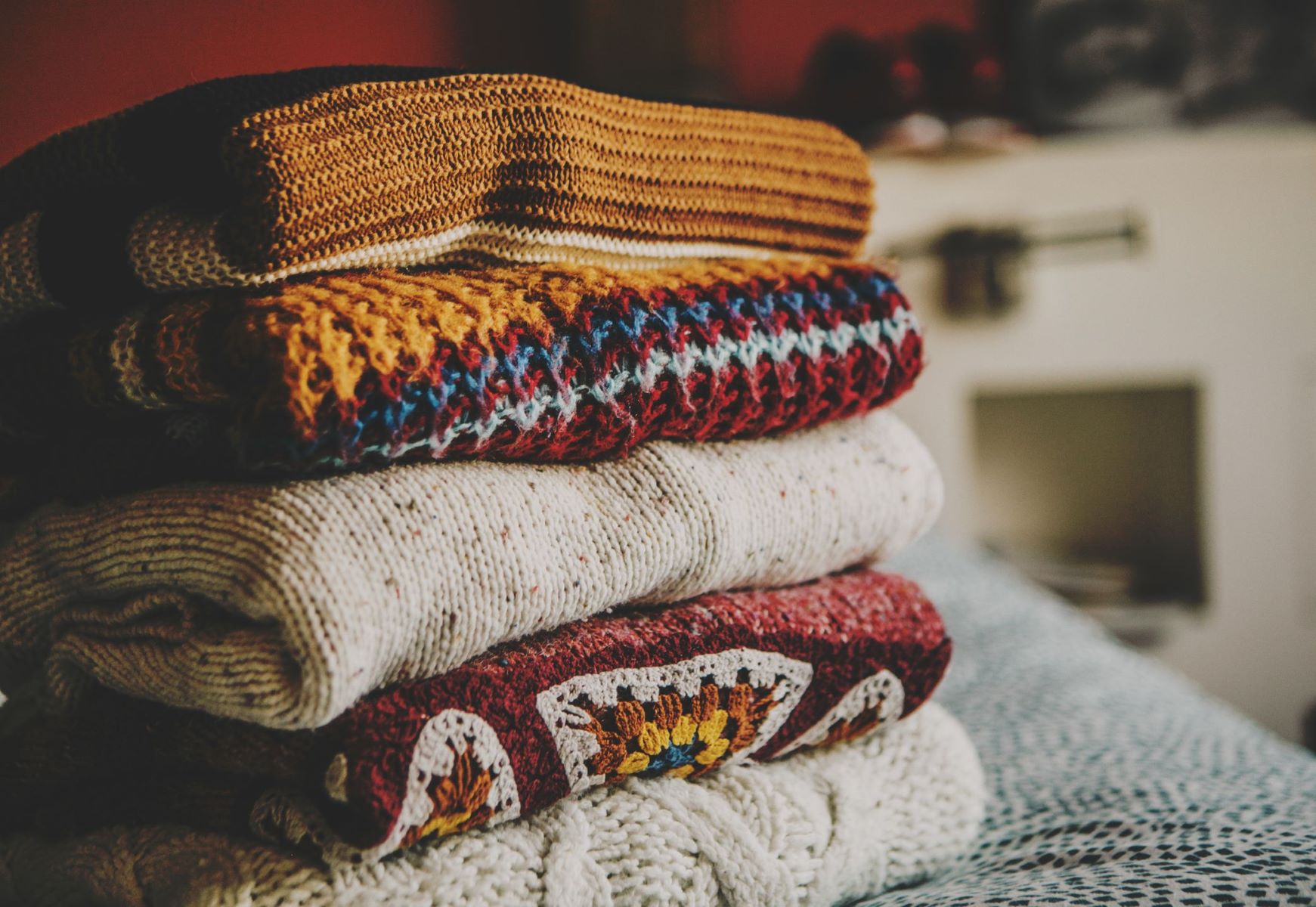

Articles
Why Does My Blanket Smell?
Modified: December 7, 2023
Discover articles on why your blanket may smell and how to get rid of the odor. Find expert advice and solutions to keep your blankets fresh and clean.
(Many of the links in this article redirect to a specific reviewed product. Your purchase of these products through affiliate links helps to generate commission for Storables.com, at no extra cost. Learn more)
Introduction
Blankets are cozy companions that provide warmth and comfort, making them an essential part of our daily lives. Whether we use them to snuggle up on a chilly winter night or to add an extra layer of coziness to our beds, blankets play a vital role in keeping us comfortable and snug. However, you may have noticed that over time, your blanket starts to emit an unpleasant odor. But why does your blanket smell?
The smell coming from your blanket can be off-putting and can impact your overall relaxation experience. Understanding the reasons behind the odor and implementing the necessary solutions can help you maintain fresh and pleasant-smelling blankets.
In this article, we will delve into the common causes of smelly blankets and explore various remedies to address this issue. By the end, you’ll have a better understanding of why your blanket may be emitting an unpleasant smell and what steps you can take to eliminate it.
Key Takeaways:
- Embrace the Pleasure of Freshness
By understanding the causes of smelly blankets and implementing remedies like regular washing, sunning, and proper storage, you can enjoy the cozy comfort of fresh-smelling blankets for a clean and inviting home environment. - Care for Cozy Comfort
Maintain the longevity and freshness of your blankets by incorporating regular washing, drying, and storage practices, along with the use of fabric softeners or dryer sheets, to create a delightful and inviting atmosphere in your home.
Read more: Why Does My Duvet Smell
Importance of Blankets
Blankets serve a significant purpose beyond just keeping us warm. They provide a sense of security and comfort, allowing us to relax and unwind after a long day. Whether it’s snuggling under a favorite blanket while watching a movie or wrapping ourselves up tightly to fend off the winter chill, blankets become a cherished part of our lives.
Not only do blankets provide physical warmth, but they also offer psychological comfort. The weight and softness of a blanket can provide a sense of reassurance, helping to reduce anxiety and promote better sleep. In fact, weighted blankets are specifically designed to provide deep pressure stimulation, which can have a calming effect on the nervous system and improve sleep quality for individuals with anxiety or sensory processing disorders.
Blankets also play a crucial role in maintaining optimal body temperature. They help regulate our body heat by trapping the warmth generated by our body, preventing it from dissipating into the surrounding environment. By keeping us at a comfortable temperature, blankets promote a restful and undisturbed sleep, aiding in the overall quality of our rest.
Moreover, blankets are not limited to indoor use. They are versatile and can be used in various settings, such as picnics, camping trips, or outdoor events. They provide a cozy spot to sit and relax, protecting us from the cold and damp ground.
Common Causes of Smelly Blankets
There are several factors that can contribute to the unpleasant smell that emanates from your blanket. Understanding these causes is key to effectively addressing the issue and restoring your blanket to its fresh and clean state. Here are some common reasons why your blanket may develop a smell:
- Perspiration and Body Odor: The human body naturally produces sweat and oils, which can be absorbed by the fabric of the blanket. Over time, these sweat and oil residues can accumulate and result in an unpleasant odor.
- Insufficient Washing or Drying: Infrequent washing or inadequate drying of blankets can lead to the growth of bacteria and fungi, which can cause a musty or foul smell.
- Mold and Mildew: If the blanket is not dried thoroughly after getting wet or stored in a damp environment, it can become a breeding ground for mold and mildew. The presence of these microorganisms can cause a distinct, musty smell.
- Pet Odors: If you have furry companions that love to cuddle up on your blanket, their fur, dander, and odor can become trapped in the fabric, resulting in an unpleasant smell.
- Smoking Residue: If you or someone in your household smokes near or around the blanket, the lingering smoke particles can permeate the fabric and leave a stale, smoky odor.
- Food or Drink Spills: Accidental spills of food or beverages on the blanket can leave behind residues that produce an unpleasant smell, especially if they are not promptly cleaned.
It’s important to identify the specific cause of the smell as it will determine the best approach to effectively eliminate it. In the following sections, we will explore various remedies to tackle these common causes and restore your blanket to its fresh, odor-free state.
Perspiration and Body Odor
One of the major contributors to the unpleasant smell in blankets is perspiration and body odor. As we sleep or rest, our bodies naturally produce sweat and oils. Over time, these substances can be absorbed by the fabric of the blanket, leading to the development of a foul odor.
When we sweat, the moisture evaporates from our bodies, leaving behind traces of salt, bacteria, and other substances. These residues can cling to the blanket fibers, creating an environment conducive to bacterial growth. The bacteria break down the sweat and oils, resulting in a distinct smell.
To combat the problem of perspiration and body odor in blankets, regular washing is essential. Washing the blanket in warm water with a mild detergent helps to remove sweat, oils, and bacteria from the fabric. Additionally, adding vinegar to the wash cycle can act as a natural deodorizer and help eliminate stubborn odors.
It’s important to note that some blankets, such as wool or delicate fabrics, may require special care. Always refer to the care instructions provided by the manufacturer to ensure you are washing the blanket properly.
In addition to regular washing, airing out the blanket can also help remove odors. Hang the blanket outside on a sunny day to let the fresh air and sunlight work their magic. UV rays from the sun have natural antibacterial properties and can help kill off odor-causing bacteria. Remember to turn the blanket over halfway through to ensure both sides receive adequate sunlight exposure.
If the smell persists even after washing and airing out, using a fabric refresher or odor-neutralizing spray can provide a temporary solution. These products work by neutralizing odors rather than simply covering them up. Simply spray the product lightly over the blanket, taking care to avoid saturating it, and allow it to dry.
By addressing the issue of perspiration and body odor through regular washing, airing out, and using odor-neutralizing agents, you can enjoy fresh-smelling blankets that enhance your relaxation and comfort.
Insufficient Washing or Drying
Another common cause of smelly blankets is insufficient washing or drying. When blankets are not washed frequently enough or are not dried properly, bacteria and fungi can thrive, resulting in a musty or unpleasant odor.
Regular washing of blankets is essential to remove sweat, oils, dirt, and other residues that accumulate over time. Depending on the fabric and usage, blankets should ideally be washed every 1-2 weeks. However, heavier blankets or those used by individuals with specific hygiene needs may require more frequent washing.
When washing your blanket, it’s important to follow the care instructions provided by the manufacturer. Use a mild detergent and select a gentle cycle to protect the fabric fibers. If the blanket is heavily soiled or has a strong odor, consider using a pre-soak cycle or adding baking soda to the wash to help eliminate stubborn smells.
Proper drying of blankets is equally important to prevent the growth of mold and mildew, which can contribute to unpleasant odors. After washing, avoid leaving the blanket damp or folded for extended periods, as this creates the perfect environment for mold and mildew to develop.
If possible, line-dry your blanket in direct sunlight. Sunlight has natural antibacterial properties and can help kill off odor-causing bacteria. The fresh air and sunshine will help remove any remaining moisture and leave your blanket smelling fresh and clean.
If line-drying is not an option, use a low-temperature setting on your dryer to prevent overheating and damaging the fabric. Add dryer balls or tennis balls to the dryer to help fluff the blanket and improve air circulation. Avoid using dryer sheets or fabric softeners that may leave a residue on the fabric, as this can contribute to a trapped and unpleasant smell.
Once the blanket is completely dry, store it in a clean, dry area to prevent any recontamination. Avoid storing the blanket in a plastic bag or in a damp environment, as this can encourage the growth of mold and mildew.
By ensuring sufficient washing and proper drying of your blankets, you can eliminate the source of unpleasant odors and maintain fresh, clean-smelling blankets for your comfort.
Read more: Why Does My Blender Smell
Mold and Mildew
Mold and mildew can be a major cause of unpleasant smells in blankets. When blankets are exposed to moisture and not dried properly, they can become a breeding ground for these fungi, leading to a musty odor.
Mold and mildew thrive in damp environments, so it is crucial to keep your blankets dry and avoid storing them in humid or poorly ventilated spaces. If your blanket gets wet, whether from spillage or accidental exposure to water, it is important to dry it thoroughly before use or storage.
To remove mold and mildew from blankets, start by shaking off any loose spores outdoors to prevent them from spreading inside your home. Next, inspect the blanket for visible mold or mildew spots. If you notice any, gently brush them off with a soft cloth or brush, taking care not to spread the spores further.
Once you have removed the visible mold or mildew, it is time to treat the blanket to prevent the growth from returning. One effective method is to wash the blanket in hot water, as high temperatures can kill the spores. Use a mild detergent and consider adding vinegar or baking soda to the wash as natural antimicrobial agents.
If the blanket is not machine washable or too delicate for hot water, you can opt for spot cleaning. Mix a solution of water and mild dish soap, dampen a clean cloth with the solution, and gently blot the affected areas. Rinse the cloth and repeat until the mold or mildew is gone. Afterwards, allow the blanket to air dry completely.
Prevention is key to avoiding mold and mildew growth in blankets. Ensure that your blankets are completely dry before storing them, and avoid storing them in humid or damp areas such as basements or closets. Consider using dehumidifiers or moisture absorbers in storage spaces to reduce humidity levels.
If you notice a persistent musty smell in your blanket despite your best efforts, it may be necessary to consult a professional cleaner who specializes in mold and mildew removal. They have the expertise and equipment to thoroughly clean and disinfect your blanket, ensuring the eradication of any lingering odors.
By preventing and addressing mold and mildew growth promptly, you can keep your blankets fresh and odor-free.
Pet Odors
If you have furry companions, it’s not uncommon to find their odors lingering on your blankets. Pet fur, dander, and even their scent can become trapped in the fabric, resulting in an unpleasant smell.
To address pet odors in blankets, it’s important to remove any loose pet hair before washing. Use a lint roller or a vacuum cleaner with an upholstery attachment to remove as much pet hair as possible from the surface of the blanket. This step will help prevent the hair from clogging your washing machine and ensure a more effective wash.
When washing blankets that have pet odors, it’s best to use a pet-safe detergent specifically formulated to eliminate pet-related smells. These detergents are designed to neutralize pet odors and remove any residue that may contribute to the smell. Follow the instructions on the detergent label and use the appropriate amount for your load size.
If the pet odor persists after washing, consider adding a cup of white vinegar to the rinse cycle. Vinegar is known for its natural deodorizing properties and can help neutralize pet odors. Remember to check the care instructions for your blanket to ensure that vinegar is safe to use.
In between washes, you can freshen up your blanket by using a fabric refresher or odor-neutralizing spray. Look for products specifically designed to eliminate pet odors. Lightly spray the product over the blanket, keeping a distance to avoid saturating it, and allow it to air dry.
Regular grooming of your pets is important to minimize odor transfer onto blankets. Brushing your pets regularly helps to remove loose fur and dander, reducing the amount that can cling to the fabric. Additionally, consider using pet-specific odor-neutralizing sprays or wipes on your pets to keep them smelling fresh.
To prevent future pet odors, you may want to establish pet-free zones where your blankets are kept. This can help minimize the amount of pet hair and odor that comes into contact with your blankets, keeping them fresher for longer periods.
By following these steps and maintaining good pet hygiene practices, you can effectively address pet odors in your blankets and enjoy a fresh and clean-smelling environment.
Smoking Residue
If you or someone in your household smokes near or around your blankets, it’s likely that the fabric absorbs the lingering smoke particles, leading to a stale and smoky odor. Removing smoking residue from blankets requires special attention to eliminate the smell and restore freshness.
To begin, it is important to create a smoke-free environment around your blankets. Avoid smoking near them and designate specific smoking areas away from your living space. This preventive measure can help minimize the absorption of smoke smell into the fabric.
If your blanket has already absorbed smoke odor, one of the first steps you can take is to air it out. Hang the blanket outside in a well-ventilated area on a sunny day. The fresh air and sunlight help dissipate the smoke particles and naturally deodorize the fabric. Be sure to flip the blanket over halfway through the airing out process to ensure both sides are exposed to the sunlight.
In addition to airing out, washing the blanket is crucial to eliminate smoking residue. Before washing, check the care instructions on the blanket. If it is machine-washable, use a mild detergent and wash it according to the instructions. Adding a cup of vinegar to the wash can also help neutralize the smoke smell.
For blankets that are not machine-washable or need special care, spot cleaning is an alternative. Create a mixture of warm water and mild detergent or vinegar, then dip a clean cloth into the solution and gently blot the affected areas. Rinse the cloth and repeat the process until the smoke smell is reduced. Allow the blanket to air dry completely before using or storing it.
If the smoke odor persists even after washing or spot cleaning, consider using a fabric refresher or odor-neutralizing spray specifically designed to eliminate smoke smells. Lightly spray the product over the blanket, following the instructions on the bottle, and allow it to dry.
Lastly, it is important to maintain a smoke-free environment around your blankets to prevent future odor absorption. Consider implementing a no-smoking policy indoors and designate smoking areas outdoors, away from your blankets and living spaces.
By following these steps and being proactive in maintaining a smoke-free environment, you can effectively eliminate smoking residue and enjoy fresh-smelling blankets.
Wash your blanket regularly to remove sweat, body oils, and other odors that can build up over time. Use a gentle detergent and follow the care instructions on the label.
Food or Drink Spills
Accidental food or drink spills on blankets can leave behind residues that contribute to an unpleasant smell. Whether it’s a spilled beverage or a dropped food item, addressing these spills promptly and effectively is essential to prevent odors from lingering.
The first step in dealing with food or drink spills is to act quickly. As soon as a spill occurs, remove any solid debris or excess liquid from the blanket. Use a spoon or a dull knife to gently scrape off any solid matter, taking care not to rub it into the fabric.
Next, blot the affected area with a clean cloth or paper towel to absorb as much of the spilled liquid as possible. Avoid rubbing the stain, as this can spread it further and embed it deeper into the fabric.
Once you have removed the excess spill and blotted the area, assess the stain and odor. Depending on the type of spill, you may need to employ different cleaning techniques.
For liquid spills like beverages or water-based stains, mixing a solution of warm water and mild dish soap can help remove the residue. Moisten a clean cloth with the soapy solution and gently blot the stain, working from the outside in to prevent spreading. Continue blotting until the stain is lifted. Rinse the cloth and repeat the process if necessary. Finally, allow the blanket to air dry completely to prevent any residual odor.
For oily or greasy food stains, you can use a grease-fighting dish detergent. Apply a small amount of the detergent directly to the stain and gently work it into the fabric using a soft brush or your fingertips. Rinse with warm water and repeat the process until the stain is gone. Be sure to thoroughly rinse the detergent from the fabric to avoid any lingering smells. Air drying the blanket is recommended to ensure it is completely dry before use.
In cases where the spill has caused a lingering smell, you may consider using a fabric odor-neutralizer or a mixture of vinegar and water to eliminate the odor. Lightly spray the odor-neutralizing product or the vinegar solution over the affected area, taking care not to saturate the fabric. Allow the blanket to air dry, and the odor should dissipate.
Remember, it’s best to address food or drink spills on blankets as soon as they occur to prevent them from fully penetrating the fabric and causing persistent odors. By acting quickly and using the proper cleaning techniques, you can maintain fresh and clean-smelling blankets.
Read more: Why Does My HVAC Smell
Remedies for Smelly Blankets
Dealing with smelly blankets can be quite bothersome, but there are several effective remedies to help eliminate odors and restore freshness. Here are some tried-and-tested methods to tackle smelly blankets:
- Regular Washing and Drying: The most fundamental solution is to establish a regular washing routine for your blankets. Follow the care instructions provided by the manufacturer and use a mild detergent. Proper drying is equally important to prevent the growth of bacteria, mold, and mildew. Air-drying in the sun or using a low-temperature setting on the dryer can help remove moisture and odors.
- Odor Neutralizers and Fresheners: There are various odor-neutralizing and freshening products available on the market specifically designed to eliminate unpleasant smells. Look for products with natural ingredients and non-toxic formulas. These products work by neutralizing odors rather than covering them up, resulting in fresh-smelling blankets.
- Sunning and Air-Drying: Harness the natural power of the sun and fresh air to eliminate odors from your blankets. Hang them outdoors on a sunny and breezy day, allowing the sunlight and airflow to work their magic. UV rays from the sun have antimicrobial properties that can help kill odor-causing bacteria and freshen the fabric.
- Using Fabric Softeners and Dryer Sheets: Fabric softeners and dryer sheets not only make your blankets soft and fluffy but also impart a fresh scent. Add a fabric softener or a scented dryer sheet to the wash or dryer cycle to give your blankets a pleasant fragrance.
- Storing Blankets Properly: Proper storage is crucial in preventing odors from developing in your blankets. Ensure that your blankets are clean and completely dry before storing them. Use storage containers or bags that are clean, dry, and well-ventilated. If possible, consider adding sachets of natural odor absorbers, such as activated charcoal or baking soda, to help keep the blankets smelling fresh during storage.
Remember, prevention is key to avoiding persistent odors in your blankets. Regular maintenance, including washing, drying, and proper storage, goes a long way in keeping your blankets fresh and pleasant-smelling. By incorporating these remedies into your routine, you can enjoy the cozy comfort of your blankets without any unwelcome odors.
Regular Washing and Drying
Regular washing and drying are essential steps in maintaining fresh and odor-free blankets. Over time, blankets can accumulate dirt, sweat, oils, and other residues that contribute to unpleasant smells. By implementing a regular washing routine, you can effectively eliminate these odor-causing substances and restore the cleanliness of your blankets.
The frequency of washing your blankets will depend on factors such as usage, fabric type, and personal preference. As a general guideline, it’s recommended to wash blankets every 1-2 weeks to prevent the buildup of dirt and odors. However, heavier blankets or those used by individuals with specific hygiene needs may require more frequent washing.
Before washing your blankets, it’s important to read and follow the care instructions provided by the manufacturer. Different fabrics have different requirements, and improper washing can damage the fibers or affect the overall quality of the blanket. In most cases, machine washing is suitable for a wide range of blankets, but delicate fabrics or those with special care instructions may need to be hand-washed or dry cleaned.
When machine washing your blankets, select a gentle cycle to protect the fabric. Use a mild detergent that is suitable for the specific fabric type and load size. Avoid using bleach or harsh chemicals as they can damage the fibers and lead to discoloration.
Proper drying is equally important to effectively eliminate odors and prevent the growth of bacteria, mold, and mildew. If possible, hang-dry your blanket outdoors in direct sunlight. Sunlight contains ultraviolet (UV) rays that have natural antimicrobial properties and can help kill odor-causing bacteria. Be sure to turn the blanket over halfway through the drying process to ensure both sides receive adequate sunlight exposure.
If outdoor drying is not feasible, you can opt for machine drying using a low-temperature setting. Adding dryer balls or tennis balls to the dryer can help fluff the blanket and improve air circulation, resulting in faster and more even drying.
It’s important to note that some fabrics may require alternative drying methods. For example, delicate fabrics like cashmere or silk should be laid flat to dry to avoid stretching or damaging the fibers. Always refer to the care instructions provided by the manufacturer to ensure you are drying the blanket correctly.
Once the blanket is completely dry, give it a gentle shake to fluff it up and remove any remaining particles. If desired, you can use a fabric refresher or odor-neutralizing spray to provide a fresh scent before using or storing the blanket.
By incorporating regular washing and drying into your blanket care routine, you can effectively eliminate odors and maintain fresh-smelling blankets for your comfort and enjoyment.
Odor Neutralizers and Fresheners
When it comes to tackling unpleasant odors in blankets, odor neutralizers and fresheners can be highly effective solutions. These products are specially formulated to eliminate odors rather than simply masking them, resulting in blankets that smell fresh and clean.
There are various types of odor neutralizers and fresheners available on the market, ranging from sprays to powders and even natural alternatives. Here are a few options to consider:
Fabric Freshening Sprays: Fabric freshening sprays are designed to neutralize odors and leave a pleasant fragrance on the fabric. Look for sprays that are safe to use on textiles and contain ingredients known for their odor-eliminating properties. When using a fabric freshening spray, lightly mist the blanket from a distance, focusing on areas that may harbor odors. Allow the blanket to air dry completely before use or storage.
Odor Eliminating Powders: Odor eliminating powders can be sprinkled directly onto the blanket to absorb and neutralize unwanted smells. These powders often contain baking soda or other odor-absorbing ingredients. Spread the powder evenly across the blanket’s surface and leave it to sit for a recommended amount of time, usually 15-30 minutes. Afterward, thoroughly shake or vacuum off the powder, ensuring it is completely removed before using the blanket.
Natural Remedies: If you prefer natural alternatives, there are several options to help freshen up your blankets. Baking soda is a well-known natural deodorizer that can be sprinkled over the blanket and left for several hours or overnight to absorb odors. Afterwards, shake or vacuum off the baking soda. Alternatively, you can place the blanket in a large bag or container with a few dryer sheets or sachets of activated charcoal. Leave it sealed for a few days to allow these natural odor absorbers to neutralize any unwanted smells.
When using odor neutralizers and fresheners, it’s important to read and follow the instructions provided by the manufacturer. Some products may not be suitable for all types of fabrics, so always check for compatibility before applying them to your blankets.
In addition to using commercial products, it’s worth noting that proper washing and drying methods can also neutralize many odors. Regular washing with a suitable detergent and proper airing out in the sun or fresh air can go a long way in keeping your blankets smelling fresh naturally.
By incorporating odor neutralizers and fresheners, you can effectively eliminate unwanted smells and enjoy blankets that not only feel cozy but also smell clean and inviting.
Sunning and Air-Drying
One of the effective methods to combat unpleasant odors in blankets is to harness the power of sunning and air-drying. This natural approach not only helps eliminate odors but also freshens the fabric, leaving your blankets smelling clean and rejuvenated.
Firstly, it’s important to note that sunning and air-drying are most effective for blankets made of fabrics that can withstand exposure to sunlight and air. It’s recommended to check the care label or manufacturer’s instructions to ensure that sunning and air-drying are suitable for your specific blanket.
To begin, take your blanket outdoors on a dry, sunny day. Find a clean and well-ventilated area, such as a clothesline or a sturdy drying rack, where you can hang the blanket to be exposed to sunlight and fresh air.
When hanging the blanket, ensure that it is spread out evenly and not bunched up or folded. This will allow maximum airflow and sunlight exposure, promoting effective odor elimination.
The sun’s rays have natural antibacterial properties, which can help kill off odor-causing bacteria that may be lingering in the fabric of your blanket. Additionally, sunlight can help remove moisture from the blanket, preventing the growth of mold and mildew that contribute to unpleasant smells.
Allow the blanket to hang outside for a few hours, ideally during the sunniest part of the day. If possible, rotate or flip the blanket over at the halfway point to ensure that both sides receive equal exposure to sunlight and fresh air.
It’s important to note that excessive sun exposure can cause fading or discoloration, especially for blankets made of delicate or brightly colored fabrics. If you’re concerned about potential damage, you can limit the sun exposure time or drape a clean white cloth over the blanket to provide a protective barrier while still allowing air circulation.
If hanging the blanket outdoors is not feasible, you can also air-dry it indoors near an open window or in a well-ventilated room. Position the blanket in a way that allows air to circulate around it, aiding in the drying process and freshening up the fabric.
After the sunning and air-drying process, gently shake out the blanket to remove any remaining particles or debris. The fresh air and sunshine would have helped eliminate odors, leaving your blanket smelling revitalized and ready for use.
This method is particularly beneficial for blankets that have absorbed musty odors or need a general refresh. It is a natural and environmentally-friendly way to deal with odors, without the use of chemical products.
By incorporating sunning and air-drying into your blanket maintenance routine, you can effectively eliminate unpleasant smells and enjoy fresh-smelling blankets that are cozy and inviting.
Read more: Why Does My Dresser Smell
Using Fabric Softeners and Dryer Sheets
Fabric softeners and dryer sheets are popular laundry products known for their ability to make clothes and blankets feel soft and static-free. They also provide a pleasant fragrance, making them an effective option for freshening up your blankets and leaving them smelling delightful.
Fabric softeners are typically available in liquid form, while dryer sheets are small sheets impregnated with softening agents. Both options work by coating the fabric fibers, reducing friction, and enhancing their softness.
When using fabric softeners and dryer sheets, it’s essential to choose a product that is safe for the specific fabric type of your blankets. Some sensitive fabrics may be adversely affected by certain softeners or sheets, so be sure to read and follow the manufacturer’s instructions.
To use fabric softeners, add the recommended amount to the fabric softener dispenser or directly into the wash during the rinse cycle. The softener will be evenly distributed throughout the blanket, leaving a pleasant fragrance that lasts even after drying.
If you prefer dryer sheets, simply toss one or two sheets into the dryer along with the blanket. As the dryer operates, the heat causes the softening agents on the sheets to disperse, coating the fabric and releasing a refreshing scent.
Aside from providing a lovely scent, fabric softeners and dryer sheets also help reduce static electricity, preventing the blanket from clinging to itself or other materials.
It’s important to note that while fabric softeners and dryer sheets can aid in refreshing your blankets, it’s still necessary to regularly wash and dry them to remove dirt, sweat, oils, and other residues that contribute to unpleasant smells. The combination of regular washing and the use of fabric softeners or dryer sheets will ensure your blankets are both clean and soft.
Lastly, be mindful of any allergies or sensitivities you or your household members may have. Some people may be sensitive to the fragrance or ingredients in fabric softeners or dryer sheets. If this is the case, consider opting for fragrance-free alternatives or natural-based fabric softeners that are suitable for sensitive skin.
By incorporating fabric softeners or dryer sheets into your laundry routine, you can enjoy the double benefits of soft, cozy blankets and a pleasant fragrance that adds an extra touch of freshness to your home.
Storing Blankets Properly
Proper storage is crucial in maintaining the cleanliness and freshness of your blankets. When they’re not in use, storing them correctly helps prevent the accumulation of dust, odors, and potential damage. Here are some tips for storing your blankets properly:
1. Clean and Dry: Before storing your blankets, ensure they are completely clean and dry. Washing them according to the care instructions, and allowing them to dry thoroughly, helps remove any lingering odors or residues that could attract pests or cause unpleasant smells over time.
2. Choose the Right Storage Container: Select a storage container that is clean, dry, and large enough to accommodate your blankets without excessive folding or squishing. Airtight containers may work well for certain circumstances, but ensure the blankets are fully dry before sealing them, as any residual moisture can lead to mold or mildew growth.
3. Avoid Plastic Bags: While plastic bags may seem convenient, they can trap moisture and create a humid environment, leading to the growth of mold, mildew, and associated odors. Opt for breathable fabric bags or storage containers that allow for proper air circulation.
4. Use Natural Odor Absorbers: To keep your blankets smelling fresh, consider adding natural odor absorbers to your storage containers. Sachets of activated charcoal, baking soda, or dried lavender can help absorb any potential odors and keep the blankets smelling clean during storage.
5. Store in a Cool, Dry Place: Choose a storage location that is cool, dry, and well-ventilated. Avoid areas prone to high humidity or temperature fluctuations, such as basements or attics, as these conditions can promote mold and mildew growth.
6. Avoid Direct Sunlight: Prolonged exposure to direct sunlight can cause fading or discoloration, so it’s best to store your blankets away from direct sunlight. If your storage area has windows, you can use curtains or blinds to minimize direct sunlight exposure.
7. Check Regularly: Periodically check on your stored blankets to ensure they remain in good condition. Inspect for any signs of dampness, mold, or pests. If you notice any issues, take action promptly to prevent further damage or odor development.
8. Rotate Usage: To prevent any one blanket from remaining in storage for extended periods, consider rotating the use of your blankets. This helps prevent long-term storage odors and ensures all your blankets receive proper airing and use.
By following these storage tips, you can effectively maintain the freshness and quality of your blankets, ensuring they are ready to provide comfort and warmth whenever you need them.
Conclusion
Blankets are not just functional items; they play a significant role in providing comfort and warmth. However, over time, blankets can develop unpleasant odors that diminish their appeal. Understanding the common causes of smelly blankets and implementing the right remedies is essential to keep them fresh and enjoyable.
From perspiration and body odor to mold and mildew, pet odors, smoking residue, and food or drink spills, various factors can contribute to the unpleasant smells in blankets. By addressing these causes through regular washing, proper drying, and quick action when spills occur, you can effectively eliminate odors and maintain clean and fresh-smelling blankets.
Implementing odor neutralizers, fresheners, and natural remedies, such as sunning and air-drying, can further enhance the freshness of your blankets. These methods help combat stubborn odors and restore the pleasant scent that enhances your relaxation and comfort.
Proper storage is also essential in maintaining the cleanliness and freshness of your blankets. By storing them in clean, dry, and well-ventilated containers or bags, in cool and dark locations, you can prevent the accumulation of dust, odors, and potential damage.
Remember, a routine that includes regular washing, drying, and storage practices is key to preserving the longevity and freshness of your blankets. Combining these measures with the use of fabric softeners or dryer sheets can add an extra touch of softness and a delightful fragrance to your blankets, making them even more inviting.
Investing time and effort into caring for your blankets pays off in the long run. Not only will your blankets remain cozy and comfortable, but they will also contribute to a clean and refreshing environment in your home.
So, bid farewell to smelly blankets and embrace the pleasure of soft, clean, and fresh-smelling blankets that provide warmth and comfort for years to come.
Frequently Asked Questions about Why Does My Blanket Smell?
Was this page helpful?
At Storables.com, we guarantee accurate and reliable information. Our content, validated by Expert Board Contributors, is crafted following stringent Editorial Policies. We're committed to providing you with well-researched, expert-backed insights for all your informational needs.













0 thoughts on “Why Does My Blanket Smell?”